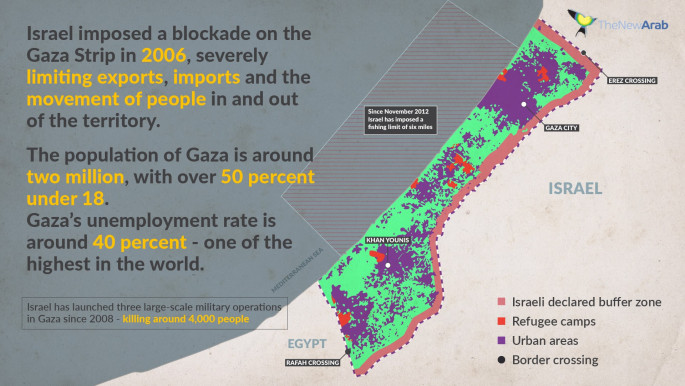Israel destroys half-a-million dollars worth of Gaza crops
Israel's recent destruction of crops in food-strapped Gaza has resulted in around half-a-million dollars of damage, Palestine has said.
Over the weekend, Israeli forces poisoned crops in the besieged Gaza Strip by pumping large amounts of rainwater into its farm land.
They turned on the rainwater collection dams along the border with the besieged enclave, causing around one square kilometre of agricultural land planted with wheat, barley, peas, cabbage, and cauliflower to sink.
According to a statement released by the Palestinian agriculture ministry on Sunday, Israel's uncontrolled opening of a water dam's gates has caused $500,000 worth of damage to agricultural areas in the besieged territory.
Large strips of farmland in Gaza's eastern Jabalia and Beit Hanoun were damaged, the statement said.
Animals were also affected by Israel's while chickens and bees in beehives drowned in the occupation-imposed flooding.
Desperately needed food, including potatoes and onions were completely destroyed on nearly 4 square km of flooded land.
Ongoing violence against Gaza
|
||
Poisoning Palestinian livestock and water is a common tactic of Israel in the besieged Gaza Strip and the occupied West Bank, which Israel illegally took over in 1967.
Read also: ICC to investigate Israeli 'war crimes' against Palestinians
In 2007, Israel imposed a land, sea and air blockade on the strip, effectively turning the coastal enclave into an open-air prison, where basic necessities such as food, fuel and medicines are severely controlled.
Nearly 70 percent of Gaza's population is food insecure and around 80 percent of Palestinians in impoverished enclave are reliant on international aid, according to the United Nations.
In addition to damaging crops, Israel blocks food deliveries from reaching the besieged enclave, along with restricting Palestinians from fishing on their own maritime territory.
Israel insists its blockade is necessary to isolate Hamas, with which it has fought three wars since 2008, scarring the besieged enclave.
Critics say the blockade amounts to collective punishment of the coastal enclave's 2 million residents.
In 2014, the UN, along with four other human rights organisations predicted Gaza will be uninhabitable by 2020 but the situation in the besieged enclave deteriorated so much that many rights organisations deemed it uninhabitable before this decade even began.





 Follow the Middle East's top stories in English at The New Arab on Google News
Follow the Middle East's top stories in English at The New Arab on Google News


